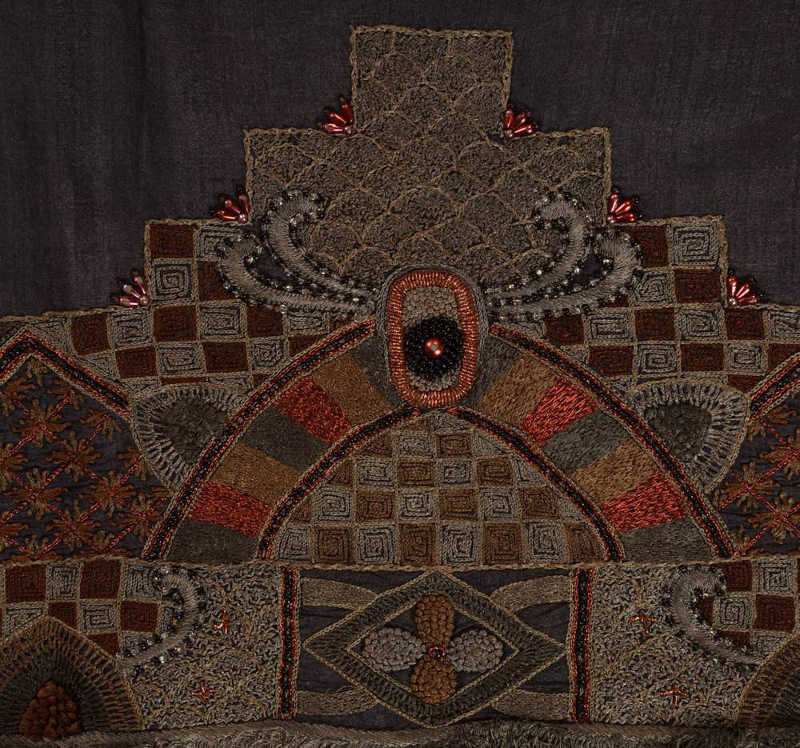===
0517,
9
===

=== |
 |
taq.siir : 'Defect, failure, omission, shortcoming; mistake, error, fault, offence, crime'. (Platts p.330)
sazaa : ''Worthy, deserving'; correction, chastisement, punishment; penalty, retribution'. (Platts p.660)
vaar : 'Becoming, befitting, suiting, fit, suitable (for), worthy (of)'. (Platts p.1173)
:zulm : 'Wrong, wrong-doing, injustice, oppression, tyranny; exaction, extortion; violence, outrage, injury; grievance, hardship'. (Platts p.755)
numaayaa;N : 'Appearing; apparent, evident; conspicuous, prominent; —striking, bold (as a picture)'. (Platts p.1153)
FWP:
SETS == EXCLAMATION; NEIGHBORS
MOTIFS
NAMES
TERMS == INSHA'IYAH; 'TUMULT-AROUSINGNESS'; WORDPLAYThe first line is insha'iyah, since ;xudaa jaane is a future subjunctive-- 'perhaps the Lord might/would know'. (I've translated it as 'the Lord knows'-- an informative [;xabariyah] statement-- in order to capture its petrified-phrase quality.) That same idiomatic, exclamatory quality also makes it extremely subject to changes in tone. 'The Lord knows what he's done!' can be said in a tone that implies darkly that he may have done any of a number of culpable things that merit extreme punishment, or else in a tone that implies indignantly that he's unlikely to have done anything much at all. And of course, between those two extremes there are various possible tones of genuine inquiry, sorrow, indifference, and so on.
The verse can even be read as revivifying the petrified phrase, to suggest that it's in fact the Lord himself who might/would know what Mir has done, and who is directly or indirectly responsible for the :zulm-e numaayaa;N . Perhaps Mir is in fact so 'self-less' that he doesn't even notice what is happening to him, so that the :zulm-e numaayaa;N is really only in the eye of the beholder. Thus various Sufistic readings can be envisioned (the stages on the path, the fate of Mansur, and so on).
But most probably it's just the beloved again, as usual. She is, after all, the ultimate :zaalim in the ghazal world. Mir's neighbors-- who call him 'Mir Sahib' out of respect and affection-- are usually sympathetic but helpless spectators of her fickleness and cruelty.